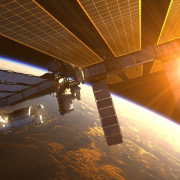- Science News
- Frontiers news
- Lauren Arkoosh – From salmon to seal scat
Lauren Arkoosh – From salmon to seal scat
Author: Thimedi Hetti
Lauren Arkoosh is currently a PhD Student at Abertay University in Scotland, focusing on seals as a sentinel species to monitor antimicrobial resistance genes in the waters surrounding the UK. We talked about her interest in marine science and her chosen career path.

What is your background?
“I graduated from the University of Portland in Oregon with an undergraduate degree in Biology and minors in Chemistry and Theatre. I worked in the Crab Lab at the University and with my Aunt in a NOAA lab in the summer. She researches immunobiology in marine species, including salmon and oysters. I then applied for a Master’s in Marine Mammal Science at St Andrews, expecting it would take me a couple of years to get into the program, but I was accepted immediately. After that, I did some lab work for a PhD student for a year, and she told me about the advertisement for the PhD I am doing now!”
Could you briefly summarize what you are studying in your PhD?
“We are using seals to map antimicrobial resistance genes in UK waters. I use PCR (polymerase chain reaction) and gel electrophoresis methods to determine the presence or absence of selected antimicrobial resistance genes (AMRG) in the seal gut using their fecal matter. Once the presence/absence is determined across regions and coupled with seal tracking data, I can create a map showing where different AMRG occur and how seals may spread AMRG in UK waters.”
Where could this research take you in the future?
“Post-PhD, my research will make a really good baseline for the location of different genes in the environment. It would also be beneficial, further down the line, to run this screen again on more animals just to see if and how things change. There are a lot of reasons why antimicrobial resistance genes and the bacteria that carry them end up in the environment. It could be from aquaculture, agriculture, industrial waste, hospital waste, etc. It will be interesting to see if that all ties together. COVID stopped my lab work for a while, but I’m still hoping to look into it.”
Do you feel empowered to be a woman in science?
“I think it is rather empowering to even talk to people about what I do. Studying molecular microbiology and statistical ecology is both fascinating and complex, and it feels great to be able to explain this to people. I don’t think people expect me to do what I do, but then again, it is very niche.”
Did you always know that you wanted to work in marine science?
“I wanted to be a judge when I was little. My father is a lawyer, so I think it had some influence on my decision to become a lawyer as well, then a maritime lawyer. With time, it kind of morphed into marine biology because I always loved the ocean (even though Idaho is landlocked!). I first started working for my aunt in Newport in Oregon, because labs always need someone to wash glassware or do similar jobs. I really liked it and it kick-started my interest to explore other areas.”
If you could meet yourself back at 16, what advice would you give to your younger self?
“Probably to just chill.I have always been anxious about the idea of the future because it brings uncertainties. It is funny considering I’m a scientist and that is the point of my work. But this is exactly where I wanted to be when I was 16. In fact, I’m ahead of the schedule technically by five years or so. I think I would say to myself, ‘Just chill a little bit’.”
What hopes do you have for your future on either personal or professional level?
“There are so many options. This PhD is interdisciplinary which is fantastic. There is the molecular biology side of it, but there’s also the marine biology with the focus on seals and their movement. It offers two very different paths. When I have completed my PhD, I will hopefully have a better understanding of which way to proceed based on what is available. And I have always been interested in the policy side of this work so that is an option I am considering as well. I just want to be happy with the work I do. I love what I’m doing right now, and I hope that continues.”
If you were to give advice to a young person who wanted to pursue a career in science but didn’t know where to start, what would it be?
“I think the best option would be to do some intern work and see if that is actually what you want to do. As I have mentioned, I interned for my aunt at NOAA, as well as at the Eagle-Island Fish Hatchery in Idaho, and at a non-profit that focuses on merging policy and science called Ocean Conservancy. I also did some work for NOAA on sperm whale acoustics during my junior and senior year of Uni. These placements helped me figure out my interests and they all led me here!”

Frontiers is a signatory of the United Nations Publishers COMPACT. This interview has been published in support of United Nations Sustainable Goal 5: Achieve gender equality and empower all women and girls.








